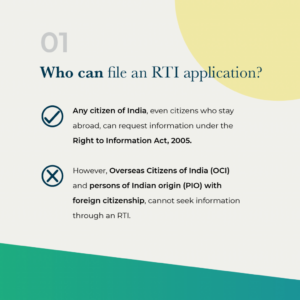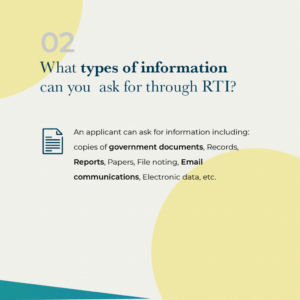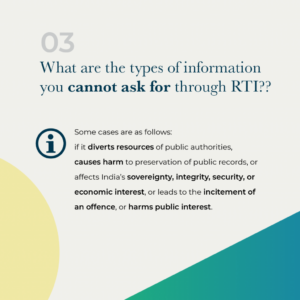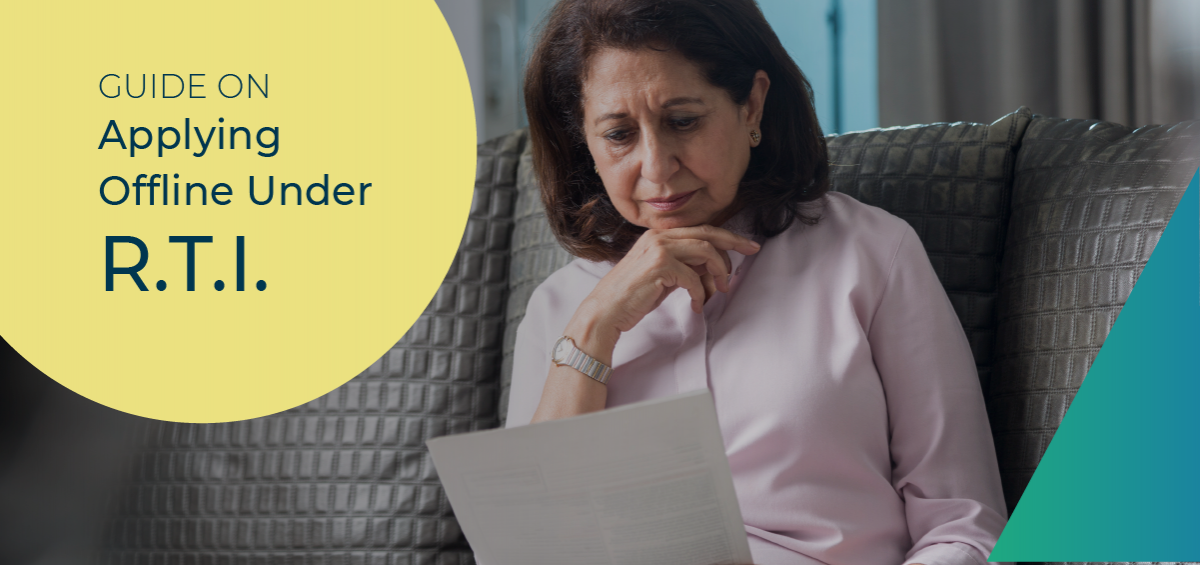
How can the guide help you?
The Nyaaya Guide on Online RTI Applications provides applicants with the steps to take when seeking information under the Right To Information Act, 2005. This guide summarises the processes involved in filing an RTI application online, appeals against certain authorities’ decisions, as well as complaint mechanisms for any online grievances. This guide also serves to inform citizens of their rights in seeking information from the central and state governments through their online portals.
What are the laws being discussed in the guide?
The Nyaaya Guide on Online RTI Applications explains the Right to Information Act, 2005, and the Right to Information Rules, 2012.



Resources
Contact Information
The Helpline and email address are for queries faced while filing the online RTI through the portal.
- 011-24622461 (9:00 AM to 5:30 PM, Monday to Friday except for Public Holidays)
- helprtionline-dopt@nic.in
The Helpline and email address are for queries faced while filing the online RTI through the portal.
- 011-24622461 (9:00 AM to 5:30 PM, Monday to Friday except for Public Holidays)
- helprtionline-dopt@nic.in
Checklists
- Check whether the applicant is eligible to file an RTI depending on their citizenship and residency status.
- Check whether the information required is exempt from disclosure for any reason whatsoever.
- Check whether the applicant has addressed the RTI application to the correct public authority.
- Check whether the applicant falls under the category of Below Poverty Line. If yes, such applicants are not required to pay application fees. If not, applicants are required to pay a fee of Rs. 10 with their application.
- Check that the applicant adheres to the timeline for the online first and second appeal, if made.
Source of Information
- Guideline
User Manual – Online RTI Application – https://rtionline.gov.in/um_citizen.pd
Right to Information Act, 2012
Right to Information Act, 2005
- Important Links
RTI Sample Application Form – https://onlinerti.com/rti-forms/Center.pdf
RTI FAQs – https://rtionline.gov.in/faq.php
First Appeal Portal – https://rtionline.gov.in/
Second Appeal Information – https://cic.gov.in/second-appeal-guidelines

